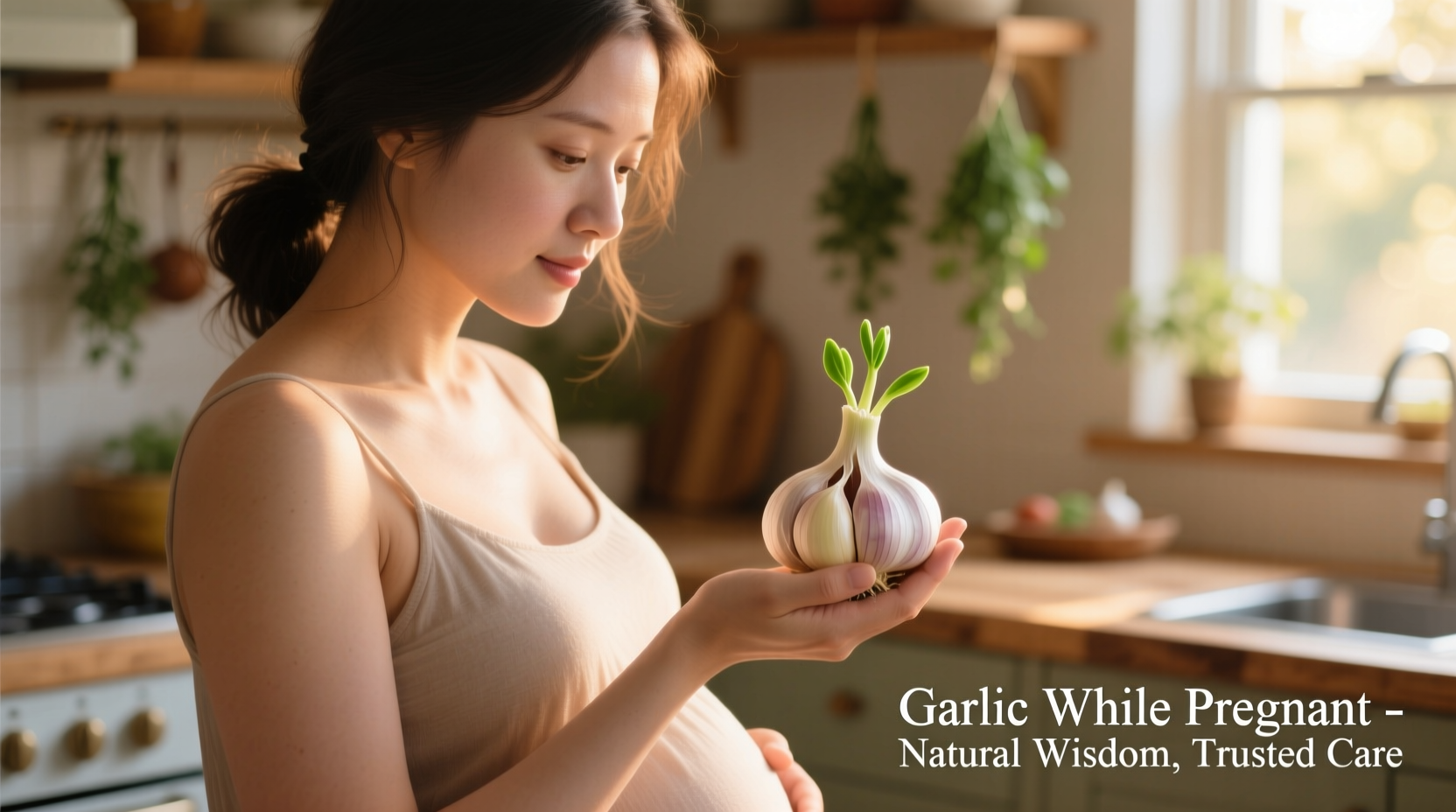Discover how to safely incorporate this flavorful ingredient into your pregnancy diet while maximizing health benefits and minimizing potential risks. This evidence-based guide provides clear recommendations from medical authorities to help you make informed choices.
Understanding Garlic's Role in Pregnancy Nutrition
When you're expecting, every food choice matters. Garlic isn't just a flavor enhancer—it's packed with compounds that may support both maternal and fetal health. The key is understanding how to enjoy its benefits while respecting pregnancy-specific considerations.
Proven Benefits of Moderate Garlic Consumption
Research shows culinary garlic offers several potential advantages during pregnancy when consumed in normal food amounts:
- Natural immune support—Contains allicin, which may help strengthen your immune system during pregnancy when immunity naturally decreases
- Blood pressure regulation—May help maintain healthy blood pressure levels, important for preventing preeclampsia
- Nutrient density—Provides manganese, vitamin B6, and selenium essential for fetal development
- Antioxidant properties—Helps combat oxidative stress that increases during pregnancy
According to the National Institutes of Health, garlic's sulfur compounds demonstrate significant biological activity that may support overall maternal health when consumed as part of a balanced diet.

Safe Consumption Guidelines for Expecting Mothers
While garlic is safe in culinary amounts, understanding appropriate portions prevents potential issues. The American College of Obstetricians and Gynecologists (ACOG) recommends:
| Garlic Form | Safe Amount During Pregnancy | Notes |
|---|---|---|
| Fresh garlic (raw or cooked) | 1-2 cloves daily | Ideal for culinary use in normal food preparation |
| Garlic powder | 1/8-1/4 teaspoon daily | Equivalent to 1 clove fresh garlic |
| Garlic supplements | Avoid without medical approval | High concentrations may cause complications |
When to Exercise Caution with Garlic
Certain pregnancy circumstances require modified garlic consumption. The Mayo Clinic identifies these context boundaries where garlic intake should be discussed with your healthcare provider:
- If you have a scheduled cesarean section within 2 weeks (garlic may increase bleeding risk)
- When taking blood-thinning medications like warfarin
- If you have a history of stomach ulcers or severe heartburn
- During the final trimester if you've experienced low blood pressure
Research published in the Journal of Integrative Medicine notes that while culinary garlic presents minimal risk, concentrated forms may interact with certain physiological changes occurring in late pregnancy.
Raw vs. Cooked Garlic: What's Best During Pregnancy?
Many expecting mothers wonder whether raw or cooked garlic is preferable. Here's what medical evidence shows:
- Raw garlic contains higher allicin levels but may cause more digestive discomfort—limit to 1 clove daily if tolerated
- Cooked garlic offers gentler digestion while retaining many beneficial compounds—ideal for regular consumption
- Aged garlic extract (in food form) provides benefits with reduced odor and stomach irritation
- Garlic supplements (pills, oils) should be avoided without explicit medical approval
The World Health Organization's guidelines on food safety during pregnancy specifically caution against high-dose garlic supplements due to insufficient safety data for fetal development.
Practical Ways to Enjoy Garlic Safely
Incorporate garlic into your pregnancy diet with these simple, safe techniques:
- Add minced garlic during the last 5 minutes of cooking to preserve benefits while reducing strong flavor
- Create garlic-infused olive oil by steeping peeled cloves in oil for 24 hours (discard garlic after 4 days)
- Use roasted garlic cloves as a spread on whole-grain toast for added fiber
- Add garlic to vegetable stir-fries after other ingredients are nearly cooked
- Include moderate amounts in soups and stews where flavor distributes throughout the dish
When to Consult Your Healthcare Provider
While garlic in food amounts is generally safe, contact your obstetrician if you experience:
- Excessive heartburn or digestive discomfort after garlic consumption
- Unusual bleeding or bruising, especially approaching delivery
- Allergic reactions including rash, swelling, or breathing difficulties
- If considering garlic supplements for specific health concerns
Remember that individual health conditions may require personalized guidance beyond general recommendations.
Frequently Asked Questions
Can garlic cause miscarriage in early pregnancy?
No, culinary amounts of garlic do not cause miscarriage. Research shows normal food consumption is safe throughout pregnancy. The concern about miscarriage relates only to extremely high doses or supplements not used in regular cooking.
Is raw garlic safe during the third trimester?
Raw garlic in small amounts (1 clove daily) is generally safe in the third trimester, but many women find cooked garlic better tolerated as digestion slows. Consult your provider if you have upcoming surgery or bleeding concerns.
How much garlic is too much when pregnant?
Consuming more than 3-4 cloves daily of fresh garlic may cause digestive issues or interact with blood clotting. The threshold varies by individual, so if you experience heartburn, nausea, or unusual bleeding, reduce your intake and consult your healthcare provider.
Can I take garlic supplements for high blood pressure during pregnancy?
No, do not take garlic supplements for high blood pressure during pregnancy without explicit medical approval. While garlic in food amounts may support healthy blood pressure, supplements contain concentrated compounds that could interact with pregnancy physiology and medical treatments.











 浙公网安备
33010002000092号
浙公网安备
33010002000092号 浙B2-20120091-4
浙B2-20120091-4